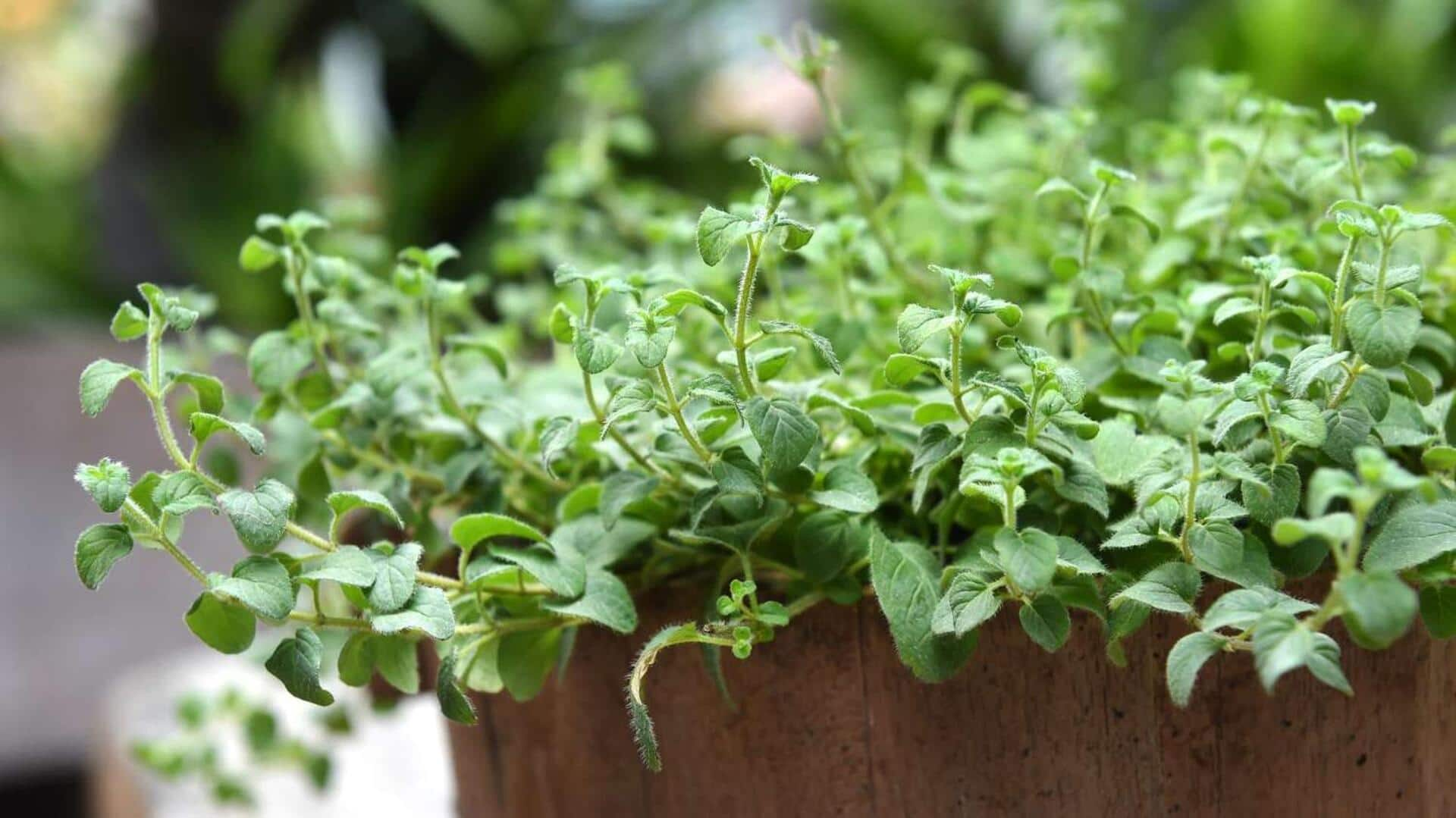
How to grow oregano at home
What's the story
Oregano, a widely used herb in various cuisines, grows best when given proper conditions. Knowing what soil types and how much sunlight to provide is important for successful growth. In this article, we will explore the key factors that can help you get healthy oregano plants, mainly soil composition and light exposure. Following these tips, you can grow oregano without any hassle.
#1
Choosing the right soil type
Oregano thrives in well-drained soil having a pH level of 6-8. Sandy or loamy soils are best suited as they avoid waterlogging, which can damage the plant's roots. Incorporating organic matter such as compost will improve soil fertility and structure, contributing to better root development. Stay away from heavy clay soils as they retain excess moisture, risking root rot.
#2
Importance of sunlight exposure
Oregano loves full sun, which means it has to be given at least six hours of direct sunlight every day. In areas with scorching heat, you can give it some afternoon shade to avoid leaf scorching, while still giving it enough light for photosynthesis. Lack of sunlight can lead to leggy plants with lower flavor intensity.
Tip 1
Watering techniques for oregano
While oregano is drought-tolerant once established, consistent watering during its initial growth phase is essential. Water deeply but infrequently to encourage deep root systems. This typically means watering when the top inch of soil feels dry to touch. Overwatering should be avoided as it can lead to fungal diseases.
Tip 2
Fertilization practices for healthy growth
To keep oregano healthy without making it too leafy at the cost of taste, fertilizing it sparingly is essential. A balanced fertilizer, applied once in the spring, suffices. Avoid fertilizers with high nitrogen content as they may result in an overgrowth of leaves instead of boosting the production of aromatic oils that oregano needs to be tasty. This way, you get both growth and taste.